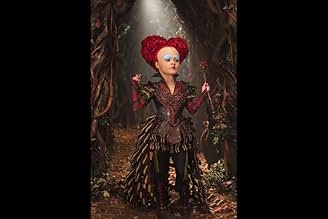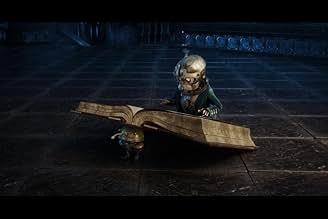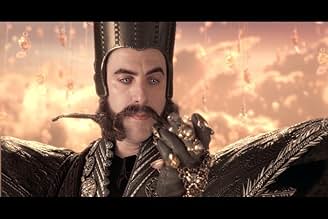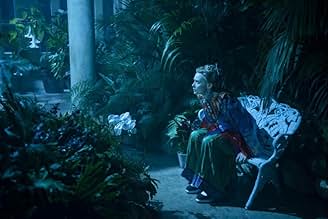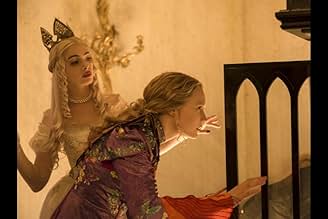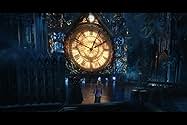Alice ritorna nel mondo capriccioso del Paese delle Meraviglie e viaggia indietro nel tempo per aiutare il Cappellaio Matto.Alice ritorna nel mondo capriccioso del Paese delle Meraviglie e viaggia indietro nel tempo per aiutare il Cappellaio Matto.Alice ritorna nel mondo capriccioso del Paese delle Meraviglie e viaggia indietro nel tempo per aiutare il Cappellaio Matto.
- Premi
- 4 vittorie e 20 candidature
Alan Rickman
- Absolem
- (voce)
Timothy Spall
- Bayard
- (voce)
Paul Whitehouse
- Thackery
- (voce)
Stephen Fry
- Cheshire Cat
- (voce)
Barbara Windsor
- Mallymkun
- (voce)
Trama
Lo sapevi?
- QuizAlan Rickman's last movie. He died four months before the release. This movie is dedicated to his memory. His final non-voice acting role was in Il diritto di uccidere (2015), which was released before he died.
- BlooperEarly in the movie Alice directs her crew to heel to port. Visually, the ship heels to starboard.
- Citazioni
Cheshire Cat: [from trailer]
Cheshire Cat: When the day becomes the night and the sky becomes the sea, When the clock strikes heavy and there's no time for tea. And in our darkest hour, before my final rhyme, she will come back home to Wonderland and turn back the hands of time.
- Curiosità sui creditiA dedication to the late Alan Rickman appears right when the first part of the end credits finish.
- ConnessioniFeatured in AniMat's Reviews: The Jungle Book (2016) (2016)
Recensione in evidenza
I liked the fact that the script of the movie is full of puns and rhymes taken from the original work. This makes the movie as interesting as the original Through the Looking Glass since Lewiss Carroll was famous with riddles and hidden messages in his works and he was known to include mathematical wonders in the writing such as the case of Alice in Wonderland. Maybe the plot was not greasy enough but overall it was a nice movie. The character that I liked most is Hatter( Johnny Depp) who has again striken me with his ability to wear different hats of roles and to impersonate himself in the character he's given. Also, the character of Alice was a fit with her angelic smile that reflects an innocent adult.
- zalouteacher
- 15 set 2016
- Permalink
I più visti
Accedi per valutare e creare un elenco di titoli salvati per ottenere consigli personalizzati
- How long is Alice Through the Looking Glass?Powered by Alexa
Dettagli
- Data di uscita
- Paesi di origine
- Siti ufficiali
- Lingua
- Celebre anche come
- Alicia a través del espejo
- Luoghi delle riprese
- Aziende produttrici
- Vedi altri crediti dell’azienda su IMDbPro
Botteghino
- Budget
- 170.000.000 USD (previsto)
- Lordo Stati Uniti e Canada
- 77.041.381 USD
- Fine settimana di apertura Stati Uniti e Canada
- 26.858.726 USD
- 29 mag 2016
- Lordo in tutto il mondo
- 299.820.798 USD
- Tempo di esecuzione1 ora 53 minuti
- Colore
- Mix di suoni
- Proporzioni
- 1.85 : 1
Contribuisci a questa pagina
Suggerisci una modifica o aggiungi i contenuti mancanti

Divario superiore
What is the Hindi language plot outline for Alice attraverso lo specchio (2016)?
Rispondi






